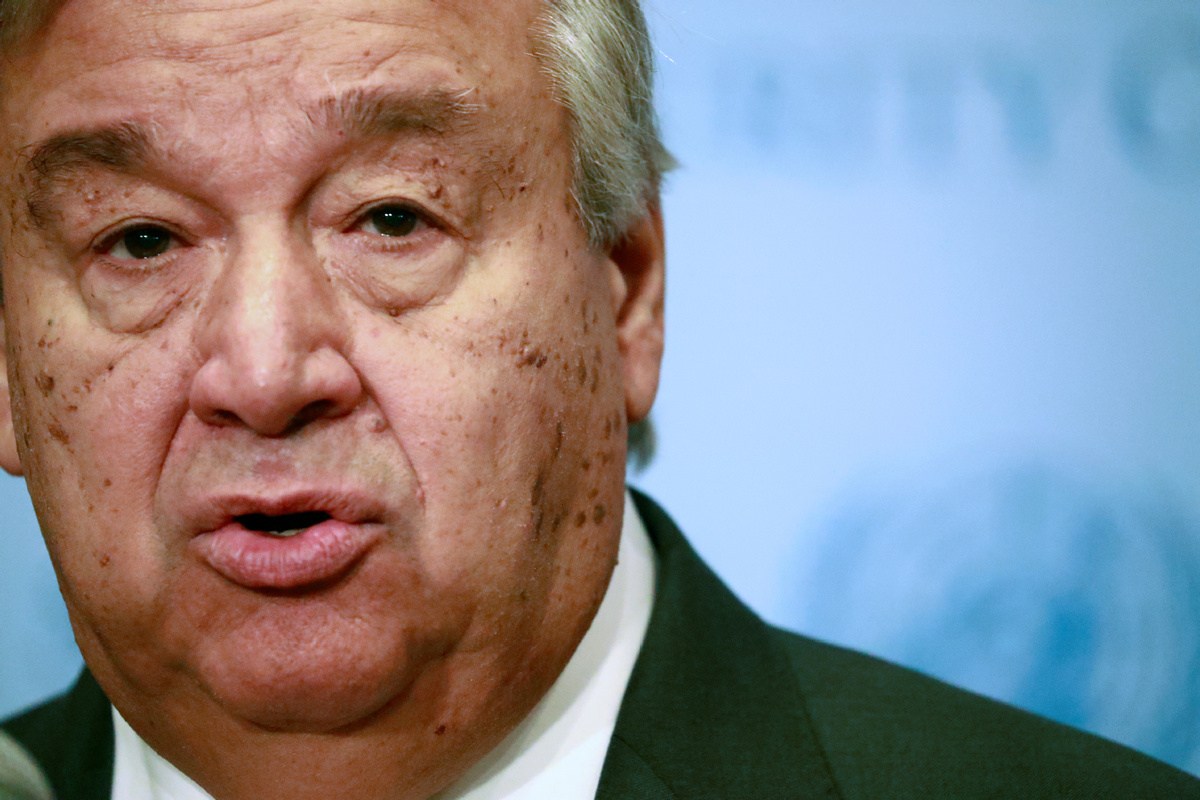
UN Secretary General Antonio Guterres makes a statement at UN headquarters in New York City, New York, Sept 23, 2019. [Photo/Agencies]
United Nations Secretary-General Antonio Guterres, who called the novel coronavirus pandemic the greatest test since World War II, has stressed that developed countries should assist less-developed nations, and he called for "an immediate, coordinated health response to suppress transmission and end the pandemic".
As the UN turns 75 this year, the global body continues to be the most representative international organization. Peace and security, human rights, and international law and development are still the main issues of its mission.
Western countries are paralyzed by dilemmas created by their obsolete government systems.
Consequently, the inefficiency of multilateral organizations becomes clear.
The attempts to reform the UN have been many. In numerous proposals, it was suggested to change the hermetic structure of the Security Council. It is legitimate to demand a more representative structure that reflects the surge of new, dynamic countries and regions.
Since 1979, more than 10 countries have proposed expanding the council. Three of them are worth mentioning: the proposal led by Brazil, the one led by the African Union and one called Uniting for Consensus.
Geopolitical pulses and power relations emerged immediately, from the North and South, and from the East and West. The positions in disagreement questioned the incorporation of Asian countries such as Japan and India, and European countries like Italy and Spain.
They also questioned the criteria of countries like Nigeria and South Africa. The debate was left incomplete after several attempts at dialogue were silenced.
The reform proposals failed because of the member states. Many more valid proposals failed because the member states have imposed rules on the United Nations that they do not wish to change.
China has become the exception. During the 33rd plenary meeting of the 74th session of the UN General Assembly, China, through Zhang Jun, China's permanent representative to the UN, said it supported reasonable reform of the Security Council to address current needs.
The Chinese proposal is based on giving priority to the voices of developing nations, especially African countries.
The pandemic has shown how international organizations, mainly the UN, have warned of the dangers and risks, having as precedents the H1N1(swine flu), H5N1(avian flu) and severe acute respiratory syndrome outbreaks.
In April 2015, the UN Secretariat put into operation the Global Health Crisis Task Force, with the goal of providing recommendations aimed at strengthening national and international prevention and response systems against possible future health crises.
Different groups of experts urgently requested efforts to prepare for health emergencies and the funding of institutions to plan for economic risks.
Another recommendation called for increasing the funding for development assistance.
The UN didn't fail. Its message was clear, but it wasn't heard. Multilateralism didn't fail; world leaders failed when they weakened it.
The challenge continues to be multilateralism and cooperation versus protectionism and unilateralism, which put at stake the vital interests of all members of the UN and their future.
It is essential to apply reform that stands for a different paradigm, one based on an integrated, inclusive and cooperative approach. What is needed is a multilateral paradigm that allows rapid response and promotes not just the fundamental interests of the 193 member states, but mainly the long-term interests of the UN.
Today, we urgently need multilateralism based on strong and committed states in order to face the common problems of humanity.
(The author is a professor at Catholic University of Salta in Argentina and a visiting scholar at the Fudan Development Institute of Fudan University. )






